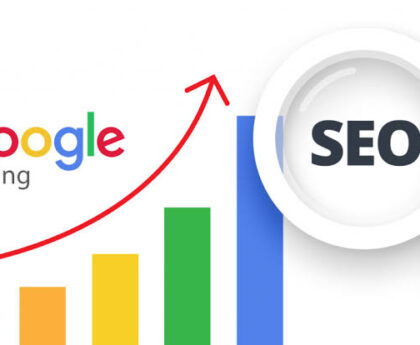
Are you struggling to scale your business and hit your targets? The secret lies in setting SMART goals. These goals — Specific, Measurable, Achievable, Relevant, and Time-bound — act as a roadmap for business growth, ensuring you stay focused and results-driven. Without a clear strategy, businesses often wander aimlessly, wasting time and resources. In this blog, we’ll break down the importance of SMART goals for business growth, how to craft them effectively, and why they’re a game-changer for scaling any venture. Whether you’re a startup owner or a seasoned entrepreneur, mastering SMART goals will help you track progress, boost productivity, and smash your business targets. Let’s dive into how you can turn wishful thinking into strategic planning and watch your business soar.
Table of Contents
- Introduction: Why Goals Matter for Business Growth
- What Are SMART Goals?
- The Importance of Setting SMART Goals for Business Growth
- How to Create Effective SMART Goals
- Real-Life Examples of SMART Goals in Action
- Conclusion: Take Action with SMART Goals
Why Goals Matter for Business Growth
In today’s competitive landscape, simply having a business idea isn’t enough. You need a structured plan to grow, and that’s where SMART goals come into play. Goals provide direction, streamline efforts, and keep your business accountable. Without them, you risk drifting without purpose — something no business can afford.
So, what’s the secret formula to setting goals that actually work? It’s all about making them SMART. Let’s uncover what that means and why they are crucial for your business’s success.
What Are SMART Goals?
SMART goals are a tried-and-tested method for goal-setting, designed to drive focus and efficiency. They break down as follows:
- S – Specific: Your goals should be clear and precise. Instead of saying “I want to grow my business,” specify, “I want to increase website traffic by 20% in the next 3 months.”
- M – Measurable: Set quantifiable targets. How will you track your progress? Metrics matter.
- A – Achievable: Be realistic. Can you achieve this goal with your current resources?
- R – Relevant: Ensure the goal aligns with your business vision and long-term strategy.
- T – Time-bound: Set a deadline to create urgency and maintain momentum.
By following this formula, you turn vague ambitions into actionable strategies — the key to business growth.
The Importance of Setting SMART Goals for Business Growth
Why are SMART goals for business growth so impactful? Let’s break it down:
1. Provides Clear Direction
Without a clear goal, your business might move in circles. SMART goals give you a concrete path, helping you prioritise tasks and channel your efforts towards what truly matters.
2. Enhances Accountability
When goals are measurable and time-bound, there’s no room for excuses. Each team member knows their role, and progress can be tracked, fostering a culture of responsibility and productivity.
3. Improves Resource Allocation
Your time, money, and energy are valuable. Setting SMART goals ensures you’re investing resources in strategies that yield tangible results rather than chasing unproductive ideas.
4. Boosts Motivation and Focus
Achieving small, incremental goals keeps your team motivated. The sense of accomplishment fuels productivity and inspires everyone to push harder for the next milestone.
5. Drives Business Growth
Ultimately, SMART goals for business growth act as stepping stones. Each achieved goal propels your business forward, creating a ripple effect of consistent progress and scalability.
How to Create Effective SMART Goals
Crafting SMART goals isn’t complicated, but it requires strategy. Follow these steps:
Step 1: Define Your Objective
Start with the big picture. What do you want to achieve? For example: “Increase monthly sales by 15% within the next quarter.”
Step 2: Break It Down
Convert the objective into the SMART framework:
- Specific: Increase sales of our new product line.
- Measurable: Aim for a 15% boost in sales.
- Achievable: Analyze past sales trends to ensure 15% is realistic.
- Relevant: Align this goal with your business expansion strategy.
- Time-bound: Set a 3-month deadline.
Step 3: Create an Action Plan
Outline the steps needed: enhance your social media marketing, run targeted ads, and optimize your website for conversions.
Step 4: Monitor Progress
Regularly track progress using key metrics. Tools like Google Analytics and CRM software can help you stay on top of performance.
Step 5: Adjust When Needed
If you hit roadblocks, revisit your SMART goals. Flexibility ensures you don’t lose momentum.
Real-Life Examples of SMART Goals in Action
Let’s look at how businesses use SMART goals to grow:
- E-commerce Brand: “Increase email subscriber list by 25% in 60 days by running targeted ad campaigns and offering exclusive discounts.”
- Fitness Studio: “Gain 50 new members by the end of the quarter by hosting free trial classes and launching a referral program.”
- Marketing Agency: “Boost website traffic by 40% in 3 months by publishing 3 SEO blogs per week and optimizing for trending keywords.”
Each example showcases a clear plan — no fluff, just strategic actions leading to business growth.
Take Action with SMART Goals
Success doesn’t happen by accident — it’s a result of strategic planning and goal-setting. Implementing SMART goals for business growth transforms your vision into actionable steps, ensuring you scale with purpose. Whether you’re increasing revenue, expanding your audience, or launching a new product, the SMART framework keeps you focused and accountable.
Ready to set SMART goals and take your business to new heights? Let’s start crafting a roadmap to success today!
Set SMART goals now — watch your business grow tomorrow.
Would you like help creating custom SMART goals for your brand’s unique growth journey? Let’s connect and build a winning strategy together!





